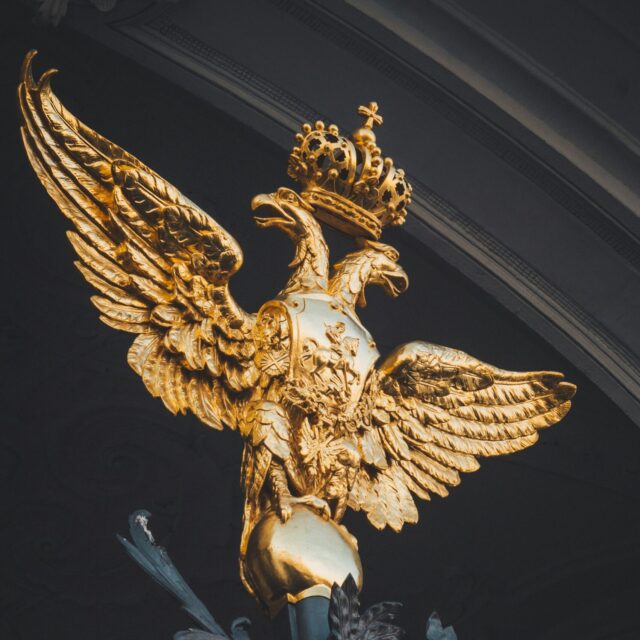Photo by Bexar Arms on Unsplash
On 28 September 2018, Saudi dissident journalist Jamal Khashoggi visited the Saudi Consulate in Istanbul to obtain a Saudi document confirming he was divorced, so that he could marry his Turkish fiancée. He was told to come back on 2 October to collect the document. When he returned a Saudi murder squad awaited: he was strangled, and his body dismembered and smuggled out of the Consulate.
The Saudis initially denied all responsibility. but finally some 15 “rogue members” were fingered for the horrendous crime. US intelligence agencies later concluded that Crown Prince and Prime Minister Mohammed bin Salman (MBS) must have authorised it.
English-speaking countries were the first to respond with fierce words but timid actions. Donald Trump was, worried about forfeiting mullti-billion defence deals, saying that “I know [Senators] are talking about different kinds of sanctions, but [the Saudis] are spending $110 billion on military equipment which means 600,000 jobs for this country.”
Canada had a major sale of armoured vehicles to Saudi Arabia pending delivery, and Prime Minister Trudeau was quick to announce that “We have frozen export permits before when we had concerns about their potential misuse, and we will not hesitate to do so again.” He was less quick to admit that export permits which had already been issued would be respected, including this deal worth £10 billion.
A recent report by the Campaign against Arms Trade (CAAT) calculates that the UK has sold the Saudis over £20 billion of military equipment and ancillary services over the past nine years. Official figures from the Department of International Trade recorded only £6.7 billion during the same period. The difference is explained by the use of “open licences” which do not have to be publicly disclosed.
Jeremy Hunt, then UK Foreign Secretary, gave a stern warning to the Saudi Ambassador that the long-term friendship between the UK and Saudi Arabia depends on “shared values”, but then promptly tempered his warning by rejecting any calls to end weapons sales, saying: “There are jobs in the UK … at stake, so when it comes to the issue of arms sales we have our procedures”. Essentially UK procedures prioritise national self-interest in keeping Saudi funding flowing freely.
While the US has been the largest supplier of arms to Saudi Arabia, followed by the UK, the next most important is France according to the Stockholm International Peace Research Institute. Unsurprisingly, while France requested a detailed investigation of the incident on 13 October, on 26 October French president Emmanuel Macron declared that it would be “pure demagogy to stop selling weapons” to the Saudis as a response to the assassination.
Only Germany of the major Western powers had the courage to stand up and be counted. Chancellor Angela Merkel, having registered her concerns directly with King Salman, halted all arms sales to the country in November 2018 – including all those which had been previously approved. Norbert Röttgen, Chairman of the German parliamentary foreign affairs committee, had earlier criticised Trump’s comments: “The decisive factor now is the behaviour of the U.S. president, who basically told the Crown Prince: we are giving you free rein as long as you buy enough weapons and other things from us.”
Four years later, with a change of Government and Chancellor in Germany, there was also a change in policy. In September 2022, new arms exports to Saudi Arabia were authorised, so the West was now united behind inaction.
The purpose of this article is neither to judge nor condemn western countries for putting their own national interest above universal ethical principles. It is the sad reality that international politics are complicated. The West does not just need Saudi money: as a major regional player and oil exporter, other countries need Saudi support to stabilise energy markets as well as to pull its weight on the world stage by condemning Russia’s invasion of Ukraine.
Some 27 years ago, Robin Cook was appointed UK Foreign Secretary following the landslide Tony Blair victory in 1997. In his first major speech, Cook declared: “The Labour government will put human rights at the heart of our foreign policy. Our foreign policy must have an ethical dimension and must support the demands of other peoples for the democratic rights on which we insist for ourselves.” He lasted just four years in the role. His worthy ambitions departed with him.
Writing in The Prince over 500 years ago, Niccolò Machiavelli declared: “Politics have no relation to morals.” Much has changed in the last half-millennium, but Machiavelli’s words still resonate today.
The UK had invited Mohammed bin Salman (MBS) to visit London in December last year, but the Saudis decided to prioritise a visit from Putin instead.
Welcome to the real world.
This article was written by Philip Bushill-Matthews before his untimely death in December 2023 and is published here with the permission of his family in honour of his memory.




